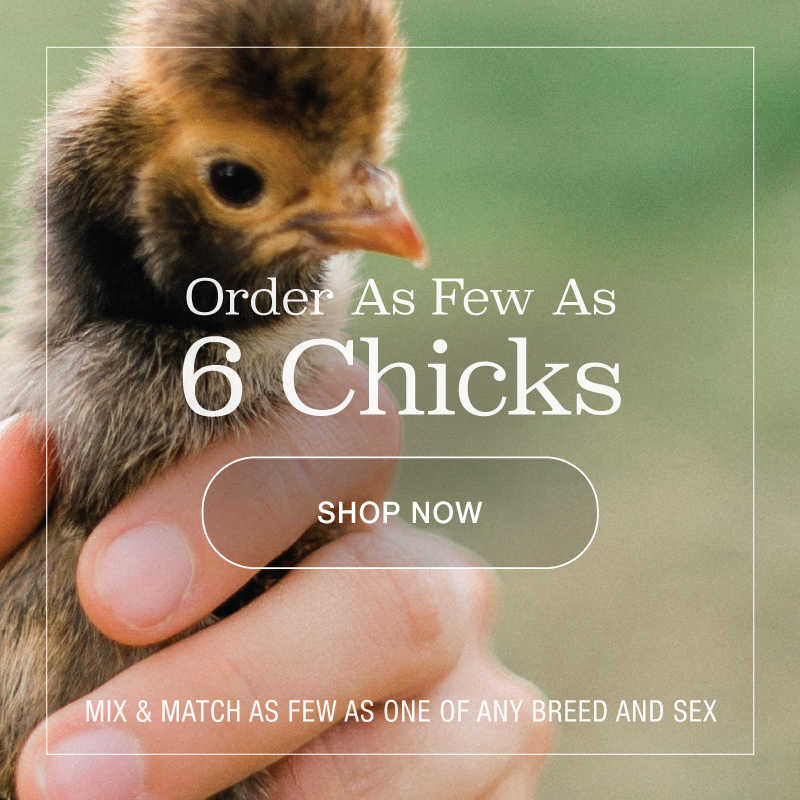As the weather turns cold, it is time to start thinking about winterizing your coop so your chickens stay healthy and produce eggs through the colder months. To help you, we have compiled a list of basic winterizing tips.
- Prevent frost bite of the feet and combs by checking your chickens frequently. Make sure that they have fresh bedding to lay and roost on. Consider going to a heavier bedding, like hay, for the winter months, as it retains heat better keeping your chickens warm.
- In the winter, chickens need protection from cold weather, which their feathers provide by keeping an insulating layer of warm air between their feathers and their body, trapped in their down. If they are situated directly in the wind its impossible to stay warm. On the other hand, they need ventilation in the coop, not only to let in fresh air, but also to let out moist air that accrues from their respirations and droppings. In the winter, moist air inside a coop can lead to frostbitten combs and wattles, and an airtight coop can also cause respiratory illnesses if the air is too wet to let the droppings dry out. In those conditions, the droppings can begin producing ammonia or hydrogen sulfide gases. So be sure your coop is well ventilated and kept dry, but that your chickens are protected from direct drafts.
- Check the coop frequently to ensure that predators have not found entry. They are more desperate to find food and water during the winter months.
- Check on your chicken’s water more frequently during colder weather as it can quickly freeze depending on your geographic region. Use a heated base for the waterer to keep water flowing, or bring warm water in to replace the frozen water.
- Consider adding more grains to their regular diet. This will add more fat and insulation to the chicken’s bodies as well as energy. Continue to supplement your chickens’ diet with food scraps for additional nutrition. Check out this high protein snack: https://www.mcmurrayhatchery.com/grubblies.html
- During the colder months, chickens are more susceptible to a condition called “pasting.” This occurs when their vents are blocked with their droppings. Check the birds frequently, and gently remove the blockage with the help of warm water if needed.
With these tips and a little extra attention, your chickens will stay very happy during the winter months.
Visit the cold weather section on our website for our recommended accessories to help your birds weather the winter at https://www.mcmurrayhatchery.com/winter_accessorites.html



I enjoyed you article . Every winter I warm my chicken house with a crock pot set on high and covered with a metal wash tub. It keeps their house warm enough to keep the water from freezing. thank you for all the ideas.
I have been reading “GRIT” magazine and have picked up several helpful hints to “winterizing” your hen house and chickens. I have installed 2 heat lamps (with the protecting screens so your chickens don’t make contact with the bulb) which are on 24/7, place bales of hay on the wind prone outside walls of the hen yard and placed a thin layer of petroleum jelly on their combs to prevent frost bite. I also have 2 heated water founts and have been feeding them whole corn (which provides oils for “extra insulation” and hopefully preventing excessive feather loss). I also have installed a regular light that stays on 14 hours a day to promote egg laying.
I did not see any mention of light and amount of light (at least 10 hours per day?) for laying hens to keep them in cycle. I was hoping for a little more info on this.
And a heat lamp for warmth for real cold areas?
Also I would think straw would be a better choice for bedding than hay, i have gotten depluming mites from hay before. I would go straw because it is dryer and seems to have less of a chance for mites.
Thank you so much for this article. My henhouse is good, but I didn’t know about the pasting or more grain. Thanks for the info.
always like the information. So far I have been lucky keeping all my chickens healthy and they live to very old ages. Even now my chickens are sitting on and hatching eggs and that is in Texas which is now getting cold. But I still get excited because next month I have new blood coming in from McMurray so keep the info coming
Thanks for the info some of it I didn’t realize was an issue.
Excellent article. Thanks for sending it.
Thank you for the informative article! The pullets I purchased from you in the Spring are doing well, and continue to enjoy good health. They are as bright, lively, and energetic as the day I picked them up from the post office. McMurray certainly offers a quality product and the subsequent support is very much appreciated.
Merry Christmas!
Thank you so much for your article! I am a new chicken owner and this was very helpful!
Will having a heat lamp or just a light in the coop help them lay better? I have light Brahmas who are just starting to lay.
Great article on winter reminders.
Question? How do you get rid of the little flea like bugs (gnats) the chickens get? I have found a few on me-not good!
Excellent article. All I would add is a bit of vasoline or approved substance to the ladies wattle and comb in the coldest of months to prevent frostbite. We hear all the best ways to keep the flock warm in the winter, but what about the eggs? if I cannot get to the eggs by the time they freeze, but do not crack, can I let them thaw out? and if so, what is the best method? If they do freeze and crack, can I use them right away after they thaw? I received my chicks from you in July, and only one died, it was a cross-bill. The others are fantastic. Gettin’ a flock of meat-birds this spring. Thanks. mc
Don’t hens require a certain number hours of light per day to keep the eggs coming? If so, it was not mentioned in your article: http://blog.mcmurrayhatchery.com/2016/11/30/keep-your-chickens-healthy-and-producing-during-winter-months/
Great info, thank you!
I love your website. I have been researching for about a year now about raising Cornish hens. I am thinking I will get started in the spring of 2017. I’ll be accessing your website quite a bit. Thank you for giving all the information and recommendations.
thanks, should be very helpful.
What temperature is ideal inside the coop in winter?
Needing to know proper procedure for de-worming and what product to use as de-wormer..thanks mr. Glen
what should the humidity in the coop be? I have 3 sizable vents but notice moisture on the window.
Hay? Really? Doesn’t that get moldy? I use shavings and straw, but would not think of using hay as bedding.
It does not get that COLD down here in S.East Texas along the Coast. It may “frost” two or times maybe…..if it gets really cold….we may see one hard freeze. I want to keep my birds comfortable and thought about hanging the red heat lamp in their coop. Should I hang the lamp high or near the floor? My coop is about 7-8 ft. square, vented,and will not let hard North wind blow in it. How low of an outside temperature get before turning on the Heat Lamp?
Thanks, Ed
My black australorps – purchased and received in July haven’t laid for 2 months. They were laying but have completely stopped. I haven’t had an egg for many weeks. My sister’s mixed breed flock have continued to lay through summer and fall and are continuing to give her eggs daily! My chickens have a clean coop, fresh hay for bedding, clean, frost free water. They have excellent shelter from the wind and the coop is ventilated. They have a scratching pen and are often let outside to free range for grass. They are given free feed layena pellets and get scratch daily. What am I doing wrong? I have several older, “retired”, black australorps. I know they will not lay, but I am confused as to why my young, mature hens will not give us eggs. I have 4 new hens! The other 5 are “retired”.
I so appreciate McMurray’s. Over 30 years I’ve ordered chicks occasionally and every time, they’ve arrived on time, secure and healthy. I’ve always employed advice your professionals have shared right up to today, having winterized my coop.
And so, thank you. All being well, I plan to order anew in the spring.
Merry Christmas to all ay McMurray’s.
Bob Watkins, Glendale, Ky.
Help! We’ve had chickens about 8 years and haven’t ever had any laying difficulties, until now. I bought chicks (50) from you last January/February, which means that they are about 10 months old, and they are still not laying!! They have a large, clean coop with a fenced acre on which to roam, and they always have layers pellets available and are fed scratch every day. In addition, there are 2 automatic water sources, which I empty and clean on a regular basis. Our chickens have a great life…..so why aren’t they laying yet? They are white Orpingtons and Silver somethings (that are pretty).
Thank you. Regards, Barbara Wright